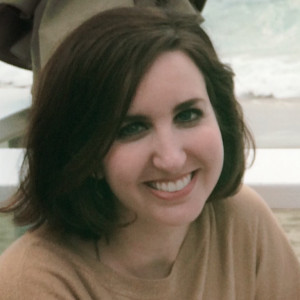- Calls to this hotline are currently being directed to Within Health, Fay or Eating Disorder Solutions
- Representatives are standing by 24/7 to help answer your questions
- All calls are confidential and HIPAA compliant
- There is no obligation or cost to call
- Eating Disorder Hope does not receive any commissions or fees dependent upon which provider you select
- Additional treatment providers are located on our directory or samhsa.gov
Online Support Groups for Families in the ED Recovery Process

What do people do when they want to find out what time a movie is playing at a nearby theater? They look it up online. What do they do when they want to find a new recipe for an upcoming dinner party? They do an online search. The Internet has become a mecca for information and guidance. It follows that online support groups can provide a unique outlet for loved ones of those in recovery.
Through online support groups, family members can learn about eating disorder treatment and process their feelings without fear of judgment. This fear often keeps people from seeking support, which is one of the many benefits of the anonymity of online groups and resources. These forums are typically monitored by a professional or volunteer with experience in the field to ensure that topics stay on track and that no triggering language is used.
Free Webinar Series Available to Loved Ones
 The National Association of Anorexia Nervosa and Associated Disorders (ANAD) provides an online support forum geared toward “…individuals searching for understanding, or celebrating their recovery, friends and family members of individuals with eating disorders, and professionals who work with eating disorders.” This community for anyone touched by eating disorders can greatly benefit family members, giving them the opportunity to gain insight from different sources.
The National Association of Anorexia Nervosa and Associated Disorders (ANAD) provides an online support forum geared toward “…individuals searching for understanding, or celebrating their recovery, friends and family members of individuals with eating disorders, and professionals who work with eating disorders.” This community for anyone touched by eating disorders can greatly benefit family members, giving them the opportunity to gain insight from different sources.
The National Eating Disorders Association (NEDA) has a variety of online programs available to loved ones. The Parent, Family & Friends Network (PFN) offers a free webinar series available to the public, including episodes such as “Obtaining Treatment Authorization in the Complex World of Insurance” and “Levels of Care in Eating Disorder Treatment.” These can be extremely educational for family members trying to navigate the complicated process of eating disorder treatment and recovery.
There is also a NEDA helpline available through the company website that allows individuals to leave messages or inquiries and be contacted by a NEDA representative for personalized help.
Online Support Groups Related to Eating Disorders
 Eating disorders often co-occur with substance abuse. If applicable, loved ones can join groups for family members of those with addiction or substance abuse issues. For example, Al-Anon is a support group for friends and family of alcoholics and offers online meetings and email blasts.
Eating disorders often co-occur with substance abuse. If applicable, loved ones can join groups for family members of those with addiction or substance abuse issues. For example, Al-Anon is a support group for friends and family of alcoholics and offers online meetings and email blasts.
Many organizations provide online support groups related to eating disorders, though these are typically geared toward those in recovery themselves, such as the Eating Disorders Anonymous chatroom. Family members are often able to participate but might get more out of programs specifically aimed for loved ones.
There are many online resources for families in the eating disorder recovery journey. These include online support groups, which can provide information and comfort to family members from the privacy of their own homes. Seeking support is important for family and friends to manage their own feelings and help their loved one through the recovery process.
 About the Author: Courtney Howard is a Certified Life Coach specializing in eating disorders through Lionheart Eating Disorder Recovery Coaching. As a content writer at The Sovereign Health Group while writing freelance through Eating Disorder Hope, Courtney is a passionate advocate for recovery and works to fight the stigma surrounding all mental health disorders. She graduated summa cum laude with a Bachelor of Arts (B.A.) from San Diego State University, holds a paralegal certificate in Family Law, and is a Certified Domestic Violence Advocate.
About the Author: Courtney Howard is a Certified Life Coach specializing in eating disorders through Lionheart Eating Disorder Recovery Coaching. As a content writer at The Sovereign Health Group while writing freelance through Eating Disorder Hope, Courtney is a passionate advocate for recovery and works to fight the stigma surrounding all mental health disorders. She graduated summa cum laude with a Bachelor of Arts (B.A.) from San Diego State University, holds a paralegal certificate in Family Law, and is a Certified Domestic Violence Advocate.
We at Eating Disorder Hope understand that eating disorders result from a combination of environmental and genetic factors. If you or a loved one are suffering from an eating disorder, please know that there is hope for you, and seek immediate professional help.
The opinions and views of our guest contributors are shared to provide a broad perspective of eating disorders. These are not necessarily the views of Eating Disorder Hope, but an effort to offer discussion of various issues by different concerned individuals.
Last Updated & Reviewed By: Jacquelyn Ekern, MS, LPC on July 14, 2017
Published on EatingDisorderHope.com

The EatingDisorderHope.com editorial team comprises experienced writers, editors, and medical reviewers specializing in eating disorders, treatment, and mental and behavioral health.

